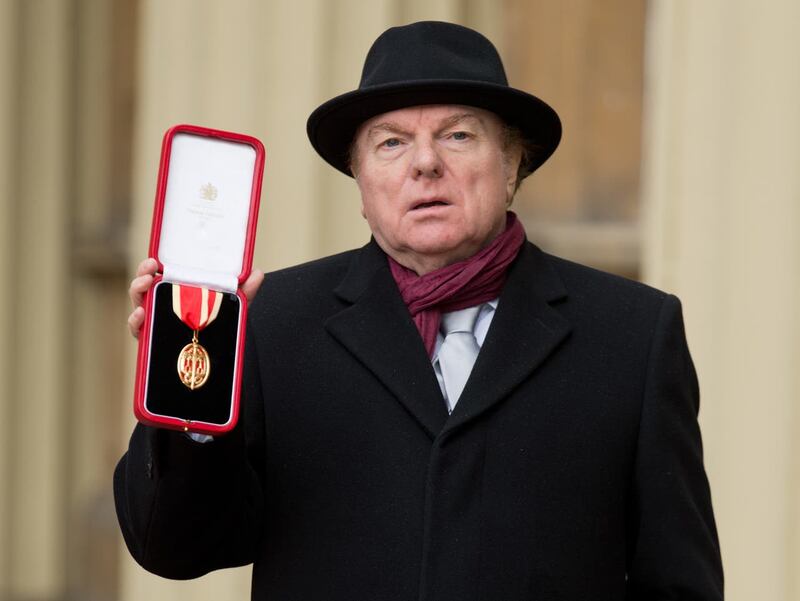Myself and a former Derry correspondent for this paper, Garbhan Downey, were recently discussing ‘personalities’ when the subject of Van Morrison came up.
Now, I have never met Van Morrison, and I accept that to many he’s regarded as a musical genius, but my perception of him has been coloured by an interview he did with Gloria Hunniford many, many years ago where he used monosyllabic answers to all her questions.
His behaviour jarred with me. Simple as that.
Subscriber Exclusive: Ask columnist Tom Kelly a question
But here’s the thing. I have no real right to this opinion based on that one public appearance. Maybe he didn’t feel comfortable that day.
Indeed, his friends might tell you that I have got it totally wrong, that in private Van is funny, a laugh a minute and great company.

The point is that the difference between perception and reality is something that colours all our lives and it’s something I have become increasingly aware of.
My favourite film growing up was Shane, starring Alan Ladd, who played the tall, strong, silent, courageous title character.
Based on the novel by Jack Schaefer – which I devoured in a day at about the age of 14 – the film premiered in New York in April 1953, grossing over $114,000 in its four weeks there which was a sort of record at the time. It’s now regarded as a classic.
I will honestly admit even to this day that the final scene of that film still brings tears to my eyes. And little wonder my eldest son is called Shane.
[ The Van Morrison fan dilemma and the powerful pull Into The Mystic - Noel DoranOpens in new window ]
But now let’s get back to reality.
Alan Ladd was 5′6″ tall, and was about 10 stone when wringing wet. After he died it was revealed that in several films the director needed to have trenches dug so that the leading lady, while walking with Ladd, didn’t tower above him. One of those who suffered this indignity was Sophia Loren, who was about 5′9″. Watching his films, none of this comes across.
And then there was my other hero of that era, Randolph Scott.
He starred in a whole host of westerns back in the day where the only thing different seemed to be the horse.
His roles were formulaic. The usual thing… tough guy hero, riding into town, taking on the bad guys and riding off into the sunset with the leading lady by his side.

The only problem about all this was that Scott was gay and hated guns and violence, so the Hollywood studio guys had to work overtime in the deeply conservative America of that time to keep his private life private.
It’s not that long ago that I got into a conversation with a woman who travelled a considerable distance to meet someone who I’ll loosely describe as a ‘BBC personality’. This woman, and I am not exaggerating one iota, used to adore this person. Not any more. Rude and condescending was her assessment.
Closer to home, John Hume was easily the most idolised politician on this island, and richly deserved to be so.
He was a colossus, the man who almost single-handedly provided the route map out of the Troubles.
In his eponymous autobiography, John Major, the former British PM, described the SDLP leader and Foyle MP as ‘prickly’.
It’s not up for debate, Hume did have that side to him.

While he had a brain the size of a planet, he didn’t take all that kindly to criticism or those who disagreed with him. His long-serving deputy, Seamus Mallon, made that clear on several occasions.
And, as a former editor of the Derry Journal who dealt with him for more than 20 years, I wouldn’t disagree.
All this is, of course, hardly a new phenomenon. History is full of omissions, deliberate or otherwise. That trait of Hume’s is not, believe me, a hanging offence but the point here is that the public perception of him largely omits this aspect of his personality.
So, I suppose the questions need to be asked: do the Americans really need to know that one of their icons, the founding father of the USA, Benjamin Franklin, fathered illegitimate children?
Are the Indians better off not knowing that their first president post-independence, Jawaharlal Nehru, had a long-running affair with Lady Mountbatten, the wife of the British Viceroy?
And how many South Africans would want to know that Nelson Mandela’s first wife divorced him after allegedly finding him with another woman?
My friend, young Downey, suggested in our conversation that maybe the best thing would be to never meet your heroes, that it would be better going through life in ignorance of their feet of clay. Something tells me that he’s right.
We all need heroes.



